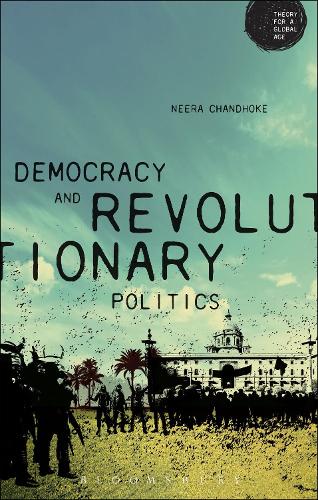
Democracy and Revolutionary Politics
(Hardback)
Available Formats
Publishing Details
Democracy and Revolutionary Politics
By (Author) Neera Chandhoke
Bloomsbury Publishing PLC
Bloomsbury Academic
23rd April 2015
United Kingdom
Classifications
Professional and Scholarly
Non Fiction
Revolutionary groups and movements
Political science and theory
Social and political philosophy
321.8
Physical Properties
Hardback
192
Width 138mm, Height 216mm
372g
Description
This book is available as open access through the Bloomsbury Open Access programme and is available on www.bloomsburycollections.com. Democracy and political violence can hardly be considered conceptual siblings, at least at first sight. Democracy allows people to route their aspirations, demands, and expectations of the state through peaceful methods; violence works outside these prescribed and institutionalized channels in public spaces, in the streets, in the forests and in inhospitable terrains. But can committed democrats afford to ignore the fact that violence has become a routine way of doing politics in countries such as India By exploring the concept of political violence from the perspective of critical political theory, Neera Chandhoke investigates its nature, justification and contradictions. She uses the case study of Maoist revolutionaries in India to globalize and relocate the debate alongside questions of social injustice, exploitation, oppression and imperfect democracies. As such, this is an important and much-needed contribution to the dialogue surrounding revolutionary violence.
Reviews
Through a sophisticated, robust and wide ranging analysis of democratic movements, Chandhoke urges us to rethink the debates on civil society, the state and violence in the global south. This is an important, thought-provoking and challenging book that will influence the thinking of all of us who are interested in questions of political and social justice. * Shirin M Rai, Professor of Politics and International Studies, University of Warwick, UK *
Neera Chandhokes Democracy and Revolutionary Politics provides a much-needed, careful and imaginative analysis of the ambivalent concept of revolutionary violence. Both with respect to its explanatory and its normative power, combining social context and general principles, it is an exemplary work political theory at its best. * Rainer Forst, Goethe University Frankfurt, Germany *
Author Bio
Neera Chandhoke, formerly Professor of Political Science at the University of Delhi, India.
